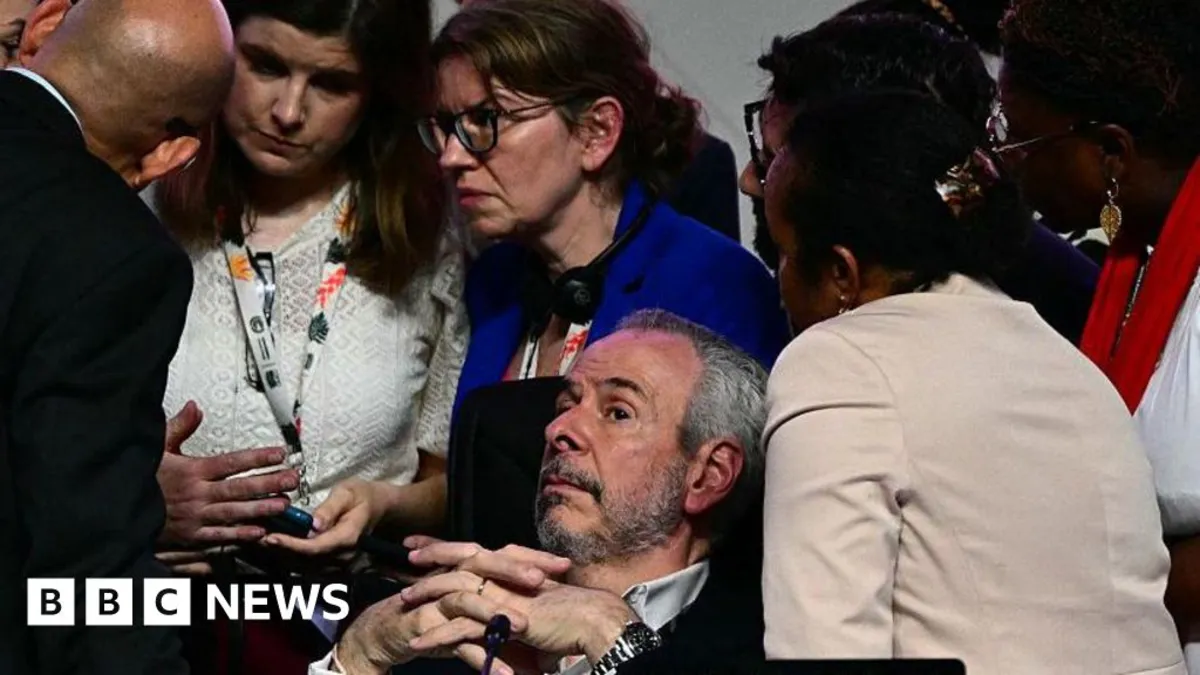
In a span of three decades, the COP meetings have attempted to forge a global consensus on addressing climate change, but COP30, held in Belém, Brazil, has emerged as one of the most contentious. The summit concluded with significant discontent among many nations, particularly concerning the absence of discussions around fossil fuels—a major contributor to global warming. While some countries felt validated in their stance to continue fossil fuel production, others expressed frustration over the lack of progress in addressing climate change. This meeting has been referred to as the "COP of truth," revealing the deep divisions in global climate politics.
The primary outcome of COP30 is the acknowledgment that the climate 'ship' continues to sail, albeit amidst growing dissatisfaction among participants. Although there was considerable goodwill towards Brazil and President Luiz Inácio Lula da Silva, many felt let down by the summit's organization. A notable divide existed between President Lula's ambitious vision for the meeting and COP president André Corrêa do Lago's focus on maintaining consensus. Lula's call for a transition away from fossil fuels resonated with several leaders, including those from the UK, leading to an initial push for a formal roadmap. However, do Lago prioritized consensus over urgency, leading to the removal of any substantive references to fossil fuels in the negotiations.
Efforts by Colombia, the European Union, and approximately 80 other nations to include stronger language against coal, oil, and gas faced resistance. A Brazilian initiative to facilitate discussions, called mutirão, aimed to bridge the gap but ultimately exacerbated tensions. Negotiators from oil-producing nations, like Saudi Arabia, rejected collaboration with those advocating for fossil fuel reduction. The talks were on the brink of failure until Brazil proposed a compromise—roadmaps on deforestation and fossil fuel management outside the COP framework—which, despite being applauded, lack legal credibility.
The European Union (EU), the wealthiest bloc still committed to the Paris Agreement, faced challenges at COP30. Despite vocal advocacy for a fossil fuel roadmap, the EU found itself unable to navigate other crucial aspects of the agreement. The proposal to triple funding for climate adaptation was included in the final draft, but the vague wording left the EU with no leverage to encourage developing nations to support the fossil fuel roadmap. As a result, the EU was perceived as cornered in negotiations, reflecting a shift in global power dynamics towards emerging economies like those in the BASIC and BRICs groups. Ultimately, the EU managed to delay the financing timeline but secured little on the fossil fuel agenda.
The lingering question at COP30 revolved around the future viability of the COP format itself. Many delegates expressed skepticism about the effectiveness of convening large groups to debate minutiae. Activist Harjeet Singh noted that while the COP model was instrumental in achieving the Paris Agreement, it now appears disconnected from the pressing realities of climate action. COP30 aimed to focus on implementation, yet the lack of clarity around Brazil's proposals raised further doubts about the process's relevance. Participants are calling for a reevaluation of how climate discussions are structured to ensure they address the urgent needs of billions affected by climate change.
For the first time, global trade emerged as a pivotal topic during COP30 discussions. The European Union's plan to implement a border tax on high-carbon products drew criticism from trading partners, including China, India, and Saudi Arabia. These countries argued that such unilateral measures would disadvantage their economies. The EU defended the tax as a necessary step to mitigate emissions, asserting that it aimed to protect environmentally friendly industries from unfair competition. The resolution involved postponing the trade discussions to future UN climate talks, indicating a complex interplay between trade and climate policy moving forward.
The two largest carbon emitters, China and the United States, influenced COP30 in contrasting ways. While U.S. President Donald Trump's absence bolstered the resolve of his allies, China adopted a low-profile approach, focusing on securing economic deals rather than engaging in contentious negotiations. Experts suggest that China's dominance in the renewable energy sector, particularly solar power, positions it advantageously in the global market, leaving the U.S. at a competitive disadvantage.
As COP30 concludes, the path forward for global climate action remains uncertain. The divisions and challenges highlighted during this summit underscore the urgent need for cohesive strategies to combat climate change effectively. For ongoing updates and insights on climate and environmental news, consider subscribing to our Future Earth newsletter.